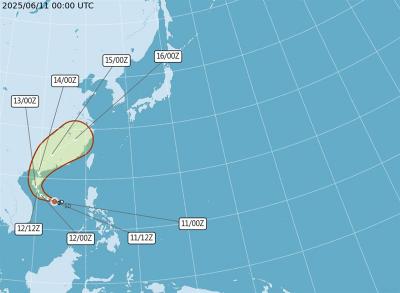Mainland Affairs Council (MAC) Chairman Joseph Wu (吳釗燮) yesterday said that cross-strait relations will be negatively influenced if the Chinese Nationalist Party and People First Party do well in tomorrow's elections.
Wu made the remarks in the wake of President Chen Shui-bian's (陳水扁) remarks that the government will tighten cross-strait economic policy should the pan-blue camp win. Chen made the comments on Wednesday while campaigning for former minister of justice Chen Ding-nan (陳定南), who is running for Ilan county commissioner.
As Chen's remarks appeared to contradict earlier statements given by the government, which said it will lift the ban on industries such as 0.18-micron-wafer fabrication facilities, semiconductor testing and packaging service suppliers and small LCD panels, and allow them to move to China. Wu moved yesterday to clarify the president's comments.
MAC said that the government will stick to its previously stated position, that is, it will review the ban. Wu added that the second Economic Development Advisory Conference to be held in January would be the ideal opportunity to reach a consensus on the review.
Wu explained of Chen's comments while attending a forum on the relation between cross-strait affairs and tomorrow's elections.
"Look at the results of last year's legislative elections. The pan-blue camp won those, and cross-strait relations have regressed since then," Wu said.
Wu blamed the regression on China's enactment of the "Anti-Secession Law" in March that authorizes the use of force against Taiwan and China's united front strategy of being friendly with the opposition parties -- by inviting opposition leaders to China in the first half of the year and avoiding having talks with Taiwan's popularly elected government.
He said that the cross-strait situation didn't get any better until the latter half of the year.
"If the pan-blues win in these elections, the opposition will be encouraged and will probably impose more boycotts on the government, which will have a harmful effect on the normalization of cross-strait relations," Wu said.
Wu then restated that it is the government's position to improve cross-strait relations, saying that the government will continue pursuing negotiations on the opening of Taiwan to Chinese tourists and direct cargo and passengers charter flights.
He said that the threat of China's military and its diplomatic oppression of Taiwan are the main obstacles to improving relations.
"Given these obstacles, many outstanding issues, such as providing protection for China-based Taiwanese businessmen, anti-crime operations and the conversion mechanism between the two currencies need the cooperation of both sides. We look forward to talking with China about these issues," Wu said.

A magnitude 6.4 earthquake struck off the coast of Hualien County in eastern Taiwan at 7pm yesterday, the Central Weather Administration (CWA) said. The epicenter of the temblor was at sea, about 69.9km south of Hualien County Hall, at a depth of 30.9km, it said. There were no immediate reports of damage resulting from the quake. The earthquake’s intensity, which gauges the actual effect of a temblor, was highest in Taitung County’s Changbin Township (長濱), where it measured 5 on Taiwan’s seven-tier intensity scale. The quake also measured an intensity of 4 in Hualien, Nantou, Chiayi, Yunlin, Changhua and Miaoli counties, as well as

Taiwan is to have nine extended holidays next year, led by a nine-day Lunar New Year break, the Cabinet announced yesterday. The nine-day Lunar New Year holiday next year matches the length of this year’s holiday, which featured six extended holidays. The increase in extended holidays is due to the Act on the Implementation of Commemorative and Festival Holidays (紀念日及節日實施條例), which was passed early last month with support from the opposition Chinese Nationalist Party (KMT) and Taiwan People’s Party. Under the new act, the day before Lunar New Year’s Eve is also a national holiday, and Labor Day would no longer be limited

COMMITMENTS: The company had a relatively low renewable ratio at 56 percent and did not have any goal to achieve 100 percent renewable energy, the report said Pegatron Corp ranked the lowest among five major final assembly suppliers in progressing toward Apple Inc’s commitment to be 100 percent carbon neutral by 2030, a Greenpeace East Asia report said yesterday. While Apple has set the goal of using 100 percent renewable energy across its entire business, supply chain and product lifecycle by 2030, carbon emissions from electronics manufacturing are rising globally due to increased energy consumption, it said. Given that carbon emissions from its supply chain accounted for more than half of its total emissions last year, Greenpeace East Asia evaluated the green transition performance of Apple’s five largest final

The first tropical storm of the year in the western North Pacific, Wutip (蝴蝶), has formed over the South China Sea and is expected to move toward Hainan Island off southern China, the Central Weather Administration (CWA) said today. The agency said a tropical depression over waters near the Paracel and Zhongsha islands strengthened into a tropical storm this morning. The storm had maximum sustained winds near its center of 64.8kph, with peak gusts reaching 90kph, it said. Winds at Beaufort scale level 7 — ranging from 50kph to 61.5kph — extended up to 80km from the center, it added. Forecaster Kuan Hsin-ping